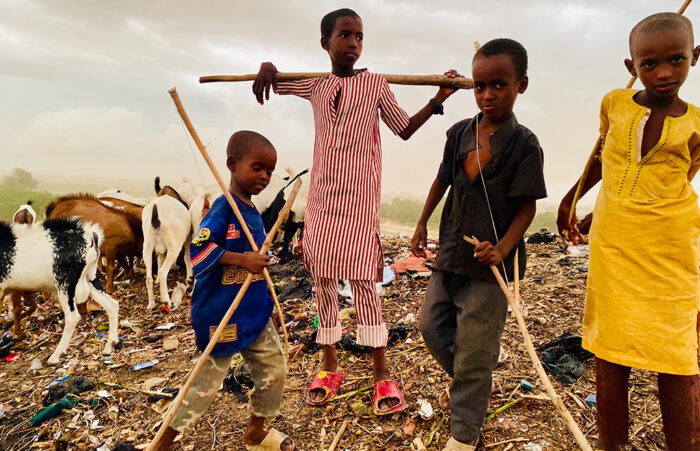By Sani Sa’idu Baba
In recent years, Nigeria has witnessed a troubling narrative gain traction in public discourse: the so-called “fulanisation of criminality.” This term refers to the growing tendency to associate criminal activities, especially rural banditry, kidnapping, and violence, with the Fulani ethnic group. While the rise in insecurity across the country is undeniable, the framing of these crises through an ethnic lens has far-reaching consequences socially, politically, and culturally.
I intend to discuss this matter vis-a-vis the origins, implications, and dangers of the fulanisation narrative, while also highlighting the complex and nuanced realities that defy simplistic ethnic profiling.
In order to discuss this topic fairly and justly, the historical and social context of Fulani identity is worth taking into account at this point.
The Fulani are a diverse and widely dispersed ethnic group found across West Africa. In Nigeria, they are traditionally pastoralists, known for cattle herding and seasonal migration. Over time, many Fulanis have also settled in towns and cities, engaging in commerce, education, and politics and these originated the inter-marietal relationship that exists between the Fulanis and other ethnic groups especially the Hausa and also Yoruba (mostly from Kwara state).
Despite this existing relationship however, tensions between the Fulani settlers and farmers particularly in North-Central and southern Nigeria have escalated in recent decades due to land pressure, climate change, and poor leadership. These disputes, often over land and grazing routes, have sometimes turned violent, and some of these confrontations have involved Fulani individuals or groups. This has contributed to the growing perception that Fulani people are inherently violent or predisposed to criminality, a perception that is mythical in its entirety.
It seems the situation has assumed a paradigm shift from insecurity to ethnic stereotyping.
I never doubted the fact that Nigeria’s security landscape has deteriorated significantly, with a surge in banditry, kidnapping, terrorism, and communal clashes, we must accept the reality that terrorism isn’t a monopoly of any tribe, region, religion or ethnic group. While various criminal groups operate across different regions, like the Boko Haram in the Northeast, IPOB in the Southeast, and cultism in the South-South, the association of Fulani herders with banditry in the North-West and North-Central has led to a blanket stereotype.
This stereotype has been amplified by social media, political rhetoric, and even some mainstream media outlets, creating a narrative that criminality is synonymous with Fulani identity. Terms like “Fulani herdsmen” have become shorthand for violent actors, despite the fact that most Fulani people are peaceful and law-abiding citizens. My humble self is a classical example. Fulani blood runs in my arteries and veins but I can confidently say that I am not a criminal. The same thing with many of our present leaders today. A significant number of president Tinubu’s ministers and other appointees are Fulanis, likewise many serving governors especially in the Northern states. And their Fulani identity doesn’t make them criminals.
Moreover, the fulanisation narrative has also been weaponized for political purposes. Accusations that the government, particularly under former President Muhammadu Buhari (who is himself a Fulani), was soft on Fulani-related crimes fed into suspicions of ethnic favoritism. This perception fueled ethnic nationalism, deepened mistrust, and created a toxic political climate.
The framing of national insecurity as an ethnically driven agenda has dangerous implications. It undermines national unity, delegitimizes state institutions, and can incite retaliatory violence. It also distracts from the real drivers of crime: poverty, weak governance, corruption, unemployment, and the proliferation of arms.
Therefore, labeling an entire ethnic group as criminal creates fertile ground for discrimination, mob justice, and even genocide. There have been reports of Fulani communities being attacked or displaced based on mere suspicion. Such acts not only violate human rights but also fuel cycles of revenge and further destabilization.
Moreover, ethnic profiling hinders effective security solutions. When law enforcement targets or overlooks individuals based on their ethnic identity rather than evidence, the real criminals escape justice, and innocent lives are destroyed.
Toward a more nuanced and just approach to addressing insecurity in Nigeria, there must be a rejection of simplistic and dangerous ethnic narratives. The government must:
(1) Strengthen law enforcement and intelligence services to tackle crime without bias.
(2) Invest in rural development and conflict resolution, particularly in areas plagued by herder-farmer clashes. Although people like Sheikh Ahmad Gumi might not be well understood by many Nigerians, his effort in mediating peace restoration especially in the North-West region must be acknowledged and complemented.
(3) Promote inter-ethnic dialogue and reconciliation through education, media, civic engagement, which could easily be achieved through the establishment of tolerance and unity promotion commission of Nigeria (TUPCON).
(4) A regulatory agency must also be established to oversee the activities of young media influencers, bloggers and online media houses to especially verify the truth or otherwise of information before promotion especially if it involves security issues. Spreading hate speech and unverified claims must be controlled. However, I am not in support of the Sultan of Sokoto ‘s view that social media is a terrorist organisation, No!
In closing, the fulanisation of criminality is a dangerous distortion of a complex reality. While certain criminal groups may include Fulani individuals, it is unjust and counterproductive to indict an entire ethnic group. Nigeria’s strength lies in its diversity, and only by addressing security challenges with fairness and objectivity can the nation begin to heal and rebuild trust across its many communities.
Ethnic scapegoating is not a solution, it is a symptom of deeper systemic issues that require urgent and inclusive attention.
I hope Nigerian and Nigerian leaders will pause and rethink…
Baba can be reached via ssbaba.pys@buk.edu.ng



